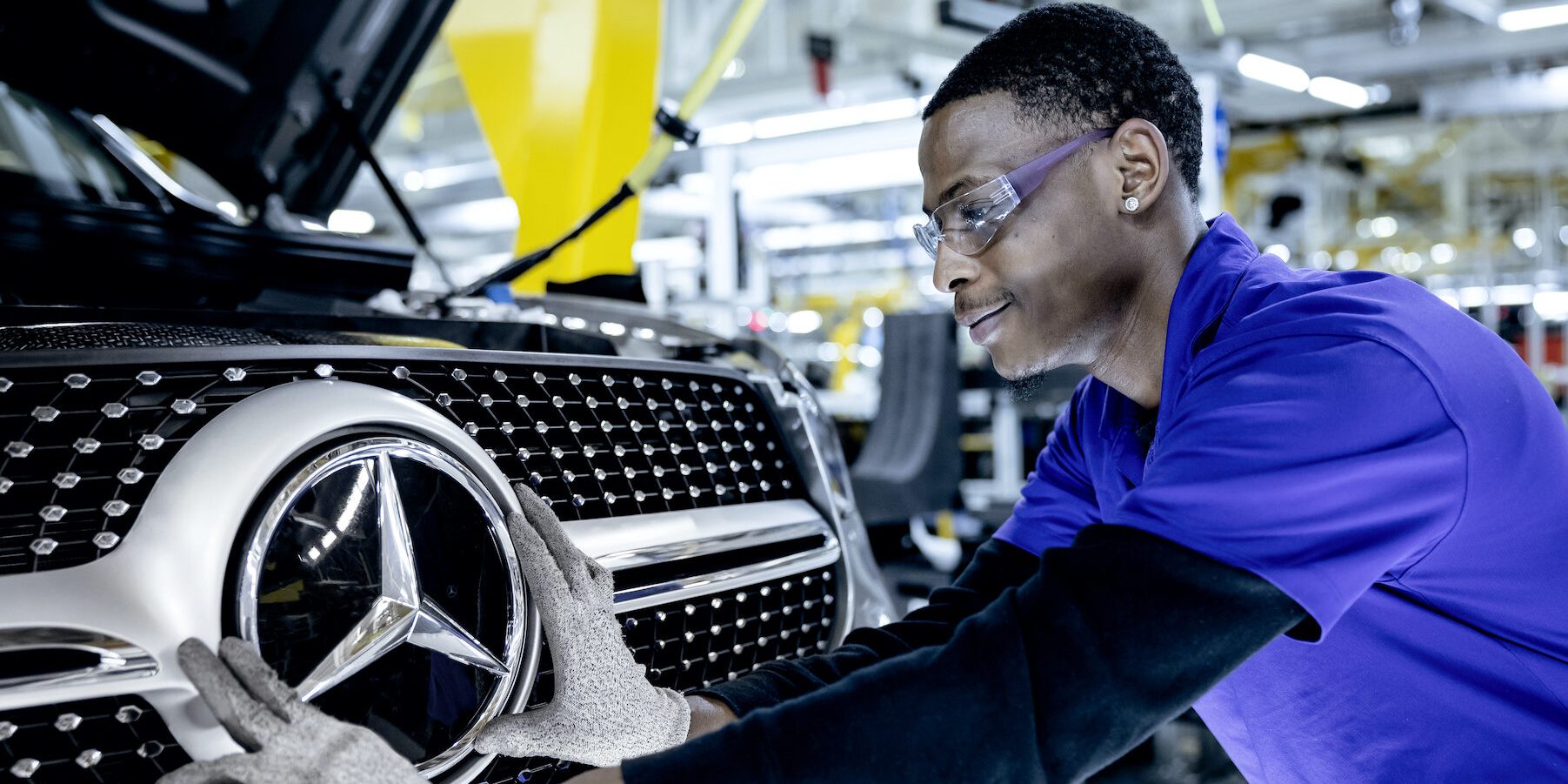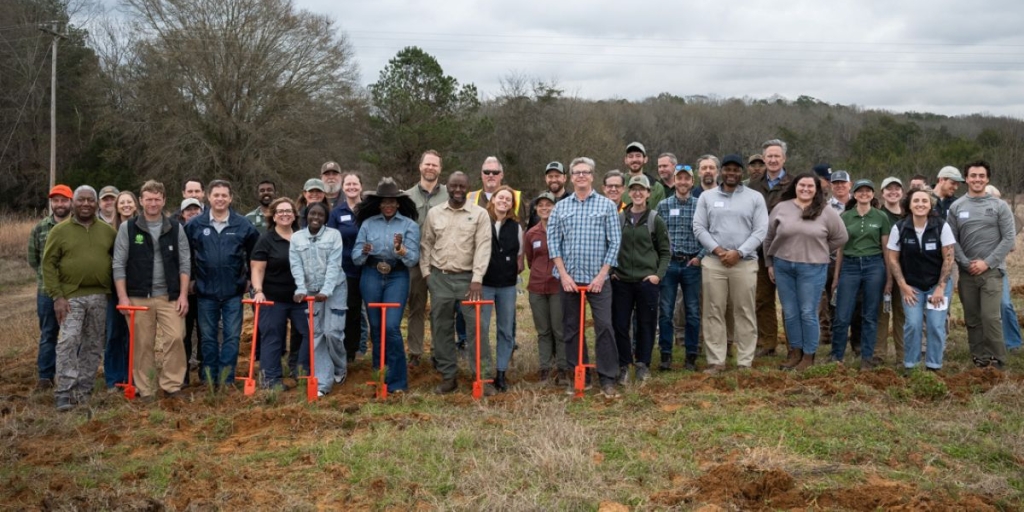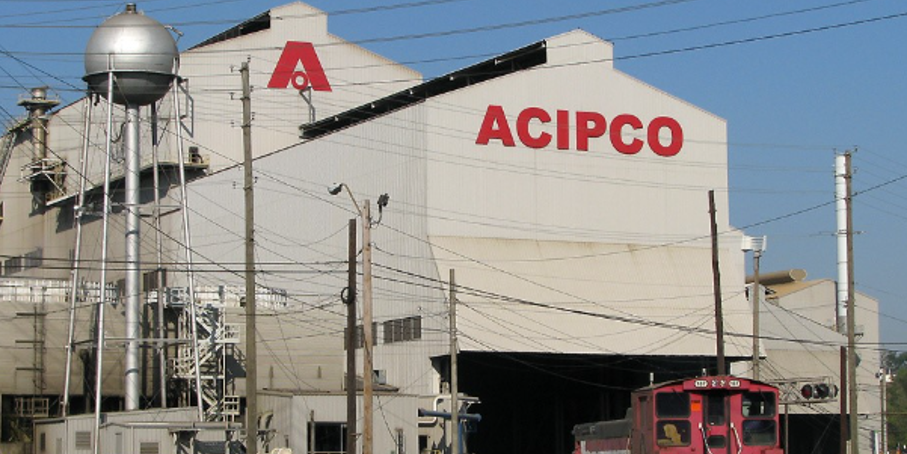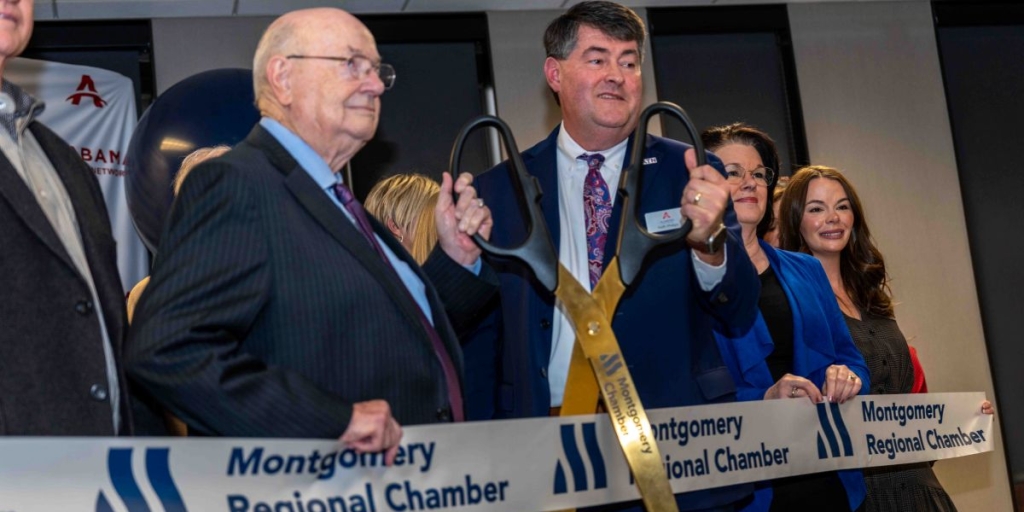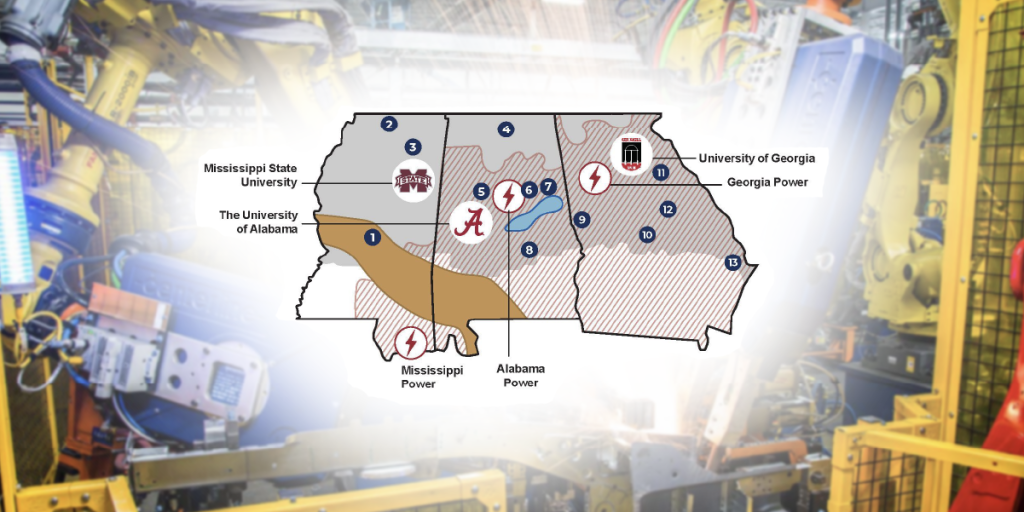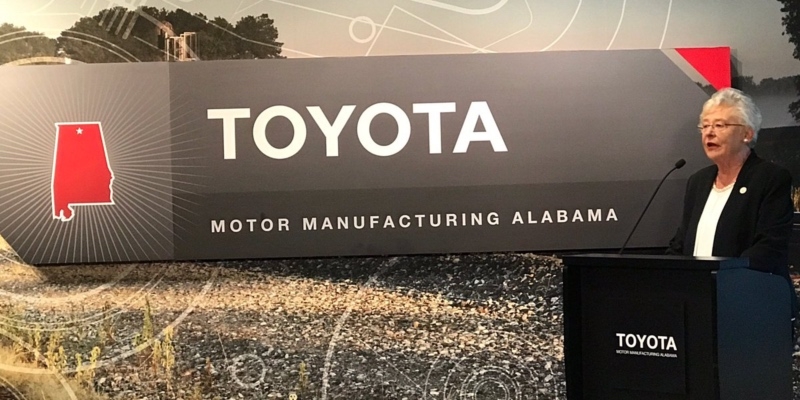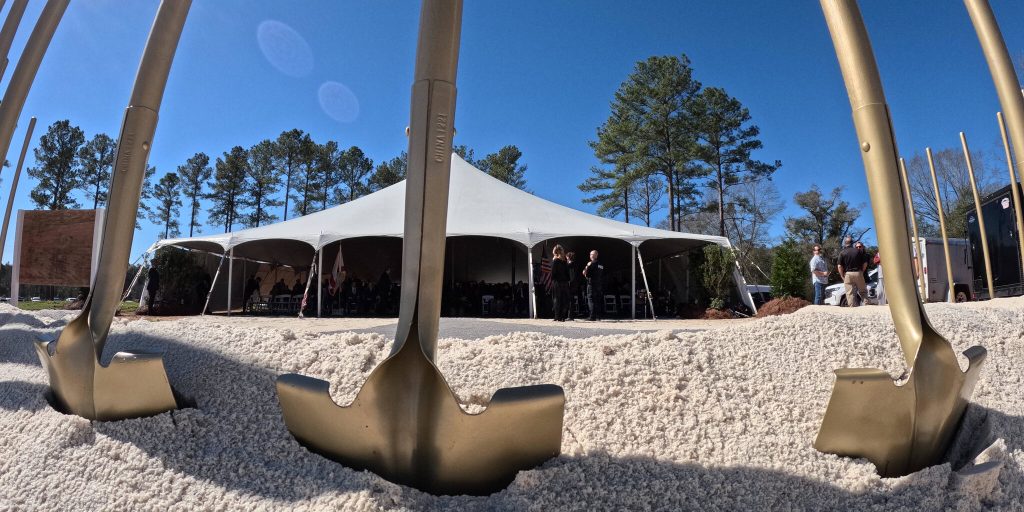For Alabama’s economic future, the pivotal moment came on Sept. 30, 1993, when executives of Mercedes-Benz arrived in Tuscaloosa with an announcement that shocked the global business community.
In the months leading to that day, a Mercedes team had explored potential sites in at least 30 states as a home for the automaker’s first U.S. manufacturing facility. Company officials came to Alabama that day to announce their decision.
For many, the news was a lightning bolt out of the blue. After all, Alabama had never produced an automobile and barely had any presence in the industry.
But Mercedes found what it wanted in a rolling 900-acre site, lined with pine trees, just outside Tuscaloosa.
The initial investment in 1993 was $400 million, with plans for 1,500 workers. The project quickly became much more than that; in fact, it came to represent a dividing line for Alabama.
For many, it became “before Mercedes” and “after Mercedes.”
Flash forward to 2023. Mercedes has invested more than $7 billion in its Alabama operation through repeated expansions that have seen its workforce in Tuscaloosa County swell to more than 6,300 people. More than 4 million vehicles have rolled down its assembly lines.
Critically, Mercedes’ arrival in Alabama opened the door for other automakers, which were also attracted by the state’s low-cost environment, first-class worker training programs, a large available workforce and its status as a right-to-work state, among other factors.
Today, Honda, Hyundai and the Mazda-Toyota partnership have joined Mercedes to operate large-scale assembly plants in Alabama, with Toyota also operating an engine plant. That concentration has solidified the state’s reputation as an auto industry powerhouse.
“The auto industry has been the primary driver of economic growth across Alabama for over two decades, providing high-paying careers for our citizens and first-class workplaces for our communities,” Gov. Kay Ivey said. “The industry’s impact on Alabama has been massive, but what really excites me is how its future is going to be even brighter in our state.”

Led by Mercedes-Benz, Alabama’s five automakers have combined to invest around $15 billion in their assembly operations in the state. (Mercedes)
Growth engine
The industry’s ascent has been rapid.
Automakers have assembled more than 15 million vehicles in Alabama since the first Mercedes M-Class rolled down the line in February 1997. Combined production capacity at the state’s auto plants now tops 1.3 million vehicles annually, earning the state a Top 5 ranking in the U.S.
Direct employment in Alabama’s automotive manufacturing sector has surpassed 50,000, surging from just a few thousand back in 1997.
Motor vehicles rank as Alabama’s No. 1 export category. Exports of Alabama-made automobiles totaled $11.2 billion in 2023, earning Alabama the No. 1 ranking among the states for vehicle exports.
Alabama’s five automakers have combined to invest around $15 billion in their assembly operations in the state, according to data from the Alabama Department of Commerce.
With capital investment of that magnitude, it’s obvious that Alabama’s auto industry functions as a dynamic growth engine for the state’s economy. Meanwhile, investment by the auto industry continues to grow across Alabama — and much of that is related to EV production.
Auto industry manufacturers with factories in the state have invested approximately $2.1 billion in EV-production infrastructure since 2020, according to the Department of Commerce, resulting in the creation of close to 2,500 new jobs.

Alabama Robotics Technology Park in Decatur will be the site of a $30 million workforce training center focused on electric vehicle technology. (AIDT)
Preparing the workforce
Alabama’s commitment to workforce development has been a factor in the auto industry’s growth in the state — and that commitment is unwavering.
In November 2023, AIDT, Alabama’s primary workforce development agency, announced plans to build a $30 million workforce training center in Decatur that will focus on electric vehicles and emerging technologies to fully position the state’s auto industry for the next chapter of its growth.
The facility will be on the campus of the Alabama Robotics Technology Park, a unique $73 million center operated by AIDT that helps companies train workers on advanced R&D and manufacturing technologies.
“Our main goal is to help the state’s automakers continue to grow during the transition to electric powertrains and assist them as they embrace new technologies that are evolving all the time,” AIDT Director Ed Castile said. “We just want to make sure we have a workforce that has the ability to thrive in this new environment, so it’s a natural extension of what we do at the Robotics Park.”
AIDT has been involved in the growth of Alabama’s auto industry since the early days, when it assisted Mercedes in assembling and training its original workforce. Over three decades, AIDT has completed automotive training for more than 125,000 people.
“We are full partners with all of our auto OEMs and almost all their suppliers in the workforce space, having recruited, assessed and trained workers for many years and through all their expansions,” Castile said. “Our auto companies continue to invest in their Alabama operations. We’re a real player in the industry now, and we’re just going to keep becoming a bigger player in this influential global business.”

Hyundai’s Alabama plant celebrated the production launch of the first Genesis Electrified GV70 SUV at a ceremony in Montgomery last year. (Hyundai Motor Manufacturing Alabama)
The EV evolution
In Alabama, the industry is making major moves to capitalize on the evolution toward EVs.
It’s starting with Mercedes, which is steering Alabama into the future again thanks to a $1 billion investment to launch EV production. The project upgraded a plant that the company already described as one of the world’s “smartest” manufacturing facilities.
In August 2022, just months after opening a sprawling battery assembly plant in Alabama, the German automaker celebrated the production launch of its luxury EQS sport utility vehicle at its Tuscaloosa County factory. Another EV, the EQE sport utility, is also being built there.
In another milestone, Hyundai’s Alabama assembly plant is now producing its first EVs — the electrified Genesis GV70 and a plug-in hybrid electric Santa Fe SUV. To get ready for that production launch, Hyundai pumped a $300 million investment into its Montgomery plant.
To advance future EV production plans, supplier Hyundai Mobis is embarking on a project to open a $205 million EV battery module plant in Montgomery that will employ as many as 400 people.
The increasing activity in the EV supply chain transmits the signal that Alabama’s auto sector is fully concentrating on tomorrow, according to Ellen McNair, secretary of the Alabama Department of Commerce.
“Alabama’s auto industry has long been a dynamic growth engine for the state’s economy, and I’m confident that it will be ready for its next chapter as the EV evolution continues to reshape automakers’ strategies,” McNair said.
“Our auto manufacturing sector boasts some serious horsepower, and it’s just getting started in this new age for the industry,” she said.
This story originally appeared on the Alabama Department of Commerce’s Made in Alabama website.




